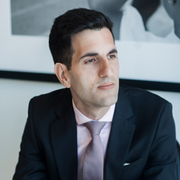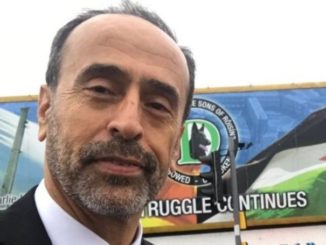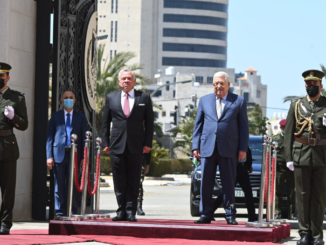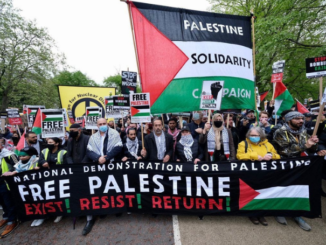
Recently I attended an unsettling talk in Toronto, entitled “Bedouistan: How did we get here – and how do we get out???” It was delivered by Naomi Linder Kahn, one of the directors of Regavim. The Jerusalem-based organization petitions the Israeli government to quicken the process of evicting and ultimately pushing Palestinians off their land, in the West Bank.
More specifically and as Canadians for Justice and Peace in the Middle East (CJPME) observe:
“Regavim…seeks to promote exclusively Jewish settlement and “sovereignty” within the entire “Land of Israel.” For them, this includes the occupied Palestinian territories, which they claim belong to Israel, but they also target regions within Israel with large Palestinian Arab or Bedouin communities, notably the Galilee and the Naqab/Negev desert. Regavim portrays the presence of these communities as a threat to Jewish sovereignty, and files legal petitions to demolish supposedly ‘illegal’ or unregulated Palestinian properties, including homes and schools, on both sides of the Green Line.”
Regavim would surely disagree. According to the group, the land they are attempting to confiscate from Palestinians is justified, as they—not Palestinians—are “indigenous” to the land. In this regard, Regavim sees itself as helping to do what the Israeli government should be doing already, international law be damned.
One of Regavim’s founders, Meir Deutsch, frames this in a language that disingenuously suggests that what the organization does is legitimate, rather than criminal: “The idea [behind the confiscation] is to empower the government to exercise its power. …We use the information we gather to create an overview of the problem [of Palestinians not leaving their land], using every resource we can get our hands on: archival material, land deeds and official documents, historic photographs, up-to-date aerial and drone photography, state-of-the-art GIS maps, and more. When we have the facts, the next stage begins.”
Kahn’s talk unsurprisingly reflected this viewpoint while also emphasizing that Palestinians are preventing Israel from realizing its full economic and other potential. In fact, many times throughout the talk she presented Palestinians, specifically the Bedouins that live on the land Regavim wants, as “primitive” and “lawless”, including kidnapping women to practice polygamy.
The charges were poorly if at all, substantiated. But they fit within one of the larger aims of the talk and a nauseating one at that: demean Palestinians such that it seemed “sensible” for Regavim, in its “noble” role, to expel them. After all isn’t it the responsibility of us “modern people”, whether in Israel or Canada, to displace indigenous groups that interfere with “progress”? Otherwise, they get in the way of capitalist growth and expansion—at the heart of such progress and which the “non-civilized” simply don’t understand.
No one in the audience objected to Kahn. One person asked why the Israeli government wasn’t getting rid of the Palestinians fast enough and if that had something to do with them being worried about what the world would think (as if it doesn’t already know that the same government is ethnically cleansing Palestine).
Kahn shared the attendee’s noticeable frustration over the inaction while agreeing that the worry in question was to blame. The Israeli government, according to Kahn, should care less and dispossess Palestinians at an accelerated rate. In Regavim’s warped worldview that is the right thing to do since the sovereignty of Palestinians, including but not limited to what they want collectively, is not worthy of serious consideration. And, when weighed against the interests of Israeli settlers, perhaps not at all.
What the Palestinians Regavim are after want is articulated in Amnesty International’s report, Israel’s apartheid against Palestinians: Cruel system of domination and crime against humanity. Specifically, it does so when it cites the testimony of Palestinian Tariq Hathaleen:
“Since 2016 it [Israeli settler harassment] has come from the settlers living in Carmel as well as by the Israeli settler organization Regavim. They fly drones over our community two maybe three times a week just to survey us. Instead of the settlers sending Israeli soldiers to terrorize us, they send over a drone. We are now always under surveillance. We live a life of inequality, and all we want is a life with justice. It is simple really. Life should be filled with peace and quiet not fear and terror. Life without apartheid would just be a more normal life, that is all that we want.”
No one should have to ask for such a life. It ought to be guaranteed to all while those who unnecessarily compromise it be held accountable. By the same token Regavim is not entitled to decide who should live on Palestinian land. That is the prerogative of the Palestinian people, acting in accordance with international law—to which all are bound. You cannot arbitrarily decide, as shown by Regavim in shamelessly committing itself to kick Palestinians off their land, and expect to get away with it.
Much as I find upsetting the affinity many in attendance of the event had for Regavim, I felt great sadness for them. They are people. How did they come to desire that Palestinians be swept off their land? We are not born with the hatred or contempt that underpins this. That only comes about through a serious corruption of one’s humanity, as might be achieved through racist brainwashing. Such corruption eventually weakens, if not altogether, dissolves our ability—central to our humanity—to care for one another while being mindful of our unique particularities.
None of this is of any real concern for Regavim. They ultimately want to take from others while preventing the development, let alone flourishing, of a community among diverse people.
Where such a community is not possible we can either work harder to figure out how we can or respectfully part ways, without harming one another. Regavim is not ok with that. It has instead resolved to eliminate the presence of Palestinians. Their focus right now is doing that in Area C of the West Bank but who knows how far they will go in their campaign of ethnic cleansing?
Regavim’s presence in Toronto, part of a near week-long speaking engagement, throws into question whether there are actual mechanisms in place to enforce international law. Article 53 of the Fourth Geneva Convention states:
“Any destruction by the Occupying Power of real or personal property belonging individually or collectively to private persons, or to the State, or to other public authorities, or to social or co-operative organizations, is prohibited, except where such destruction is rendered absolutely necessary by military operations.”
This is what Regavim is ultimately lobbying the Israeli government to do while seeking support, internationally, for it to do so. It’s also why she came to Toronto. Her talk was not just informational in nature but, as a strong advocate for Regavim, sought to persuade her audience onto the side of the organization. That’s one step closer to breaking the Convention, such as through donations that supporters of any organization are inclined to give.
Canada has ratified the Geneva Convention and so should be taking this seriously. Moreover, the right to free speech in Canada does not extend to harming others. That’s what Regavim promotes of course by making the case, as it were, to further rid the West Bank of Palestinians.
Humanity, whether in Canada or abroad, is against that. The spirit of such opposition is enshrined in international law, as well as embodied in growing solidarity efforts in support of Palestine—across the globe. Whatever its manifestation, that spirit, metaphorically, speaks a resounding no against the aims of Regavim.
They have no place in a just world or society. And that, Naomi, is why you should keep Regavim to yourself.

– Paul Salvatori is a Toronto-based journalist, community worker and artist. Much of his work on Palestine involves public education, such as through his recently created interview series, “Palestine in Perspective” (The Dark Room Podcast), where he speaks with writers, scholars and activists. He contributed this article to The Palestine Chronicle.








